|
Serge Lavoie has always had a love for the Horton Farmers’ Market. From sitting on the Market board before it changed hands to the St. Thomas EDC, to attending and shopping at the Market on Saturdays, Serge is a known face around the Market. Overtime, he realized that there was an opportunity for a vendor to provide a place for people to sit down and eat, or just meet up and have a coffee and a light breakfast. And in 2018 Serge opened Bonjour Breakfast at the Horton Farmers’ Market, and he has been a Market staple ever since. “It was kind of a retirement gig for me, I didn’t want to completely retire,” explained Serge. “I had community work going on but that was it, so my wife and I decided to give it a try.”
0 Comments
On November 18, 2024, Craig Bannerman and Chuck Maloney of The Galley 519 officially worked their first Saturday at the Horton Farmers’ Market. With unique sandwiches that change weekly to Saturday morning milk and pressed juices, The Galley 519 aims to do things differently. “I want it to be different, and I know that may freak people out,” Craig said with a laugh. “From a culinary perspective, everyone has the same thing; you just need to do it differently.”
St. Thomas was awarded the designation of Bee City last year and we are thrilled to be officially celebrating our first Pollinator Week June 17-23 with that honour! Market Day on June 22 will include some incredible special guests and activities, exciting limited edition menu options, and just an all round awesome way to spend a Saturday morning.
This designation recognizes the city's commitment to protecting and promoting pollinator species. This designation is a testament to the city's efforts to create a sustainable environment for native pollinators. The Horton Farmers' Market may be a heritage farmers' market, but we are not shying away from new ideas this season! We love how passionate folks are about the market and their desire to visit us as part of their week. We understand that Saturdays may only work for some, and while those aren't going anywhere, this year, the time has come for an expansion!
If you need more market in your week, work weekends, or just like a solid sleep-in on Saturday mornings, we're pleased to introduce Midweek Market evenings this summer! Eight years ago, tucked away in a little storefront in Port Stanley, Carly of Turtle + Bird Co made her first ceramic pieces, unknowingly planting the roots of a new pottery small business. Initially selling houseplants and hammocks, Carly first started making homemade plant pots. Then, the pottery took over, becoming more popular than the houseplants, so she left her little storefront behind and started making pottery full time from her home studio in the Village of Sparta.
All of their animals are free range and GMO free, and include unique heritage pork breeds like Berkshire, Tamworth, and Mangalista pigs.
Lots of hard work, dedication, and attention to detail goes into raising their animals, and it results in delicious products and ready-made meals, like smoked ham steaks, fresh whole chickens, bacon, and sausage rolls, made with homemade pie crusts! “We make our ready-made meals from our pork and poultry,and we sell our fresh, whole poultry as well.” Vera states. “We try to make prepared foods that get people to try things they may not usually try, like Greek Patitisio with pork or lamb, or Caribbean curry with lamb, rice and peas.” Vera explained. When you shop at a farmers’ market like The Horton Farmer’s Market, it allows you as a consumer to try different cuts and products, while also being able to interact with and get suggestions and advice from the farmers growing and creating the products. Vera and Wade take great pride in their animals and products, happily stating “We are responsible for what we raise.” They love meeting existing and new customers and sharing their products, knowledge, and pride with customers at The Horton Farmer’s Market. They also love the variety of other vendors at the market, “We get much of our fresh products from them for our prepared foods/meals.” Vera says. Just as Vera and Wade want their customers to know their farmers and know their food, the market allows them to do the same with different ingredients and products from other local vendors.
"We bought it for the land, for the space. We took everything down, built our first barn, and lived there." Carolin gestures to the Farm Store. "While building our house." The farm evolved from housing cow-calf pairs to expanding into stalker livestock. "We try to carry around 40-ish head," Carolin shared, laughing about their initial underestimation of their needs. "Turns out, we needed more barn space." Their commitment to quality was evident in every detail, from choosing breeds for leaner meat to their unique processing facility. "Our customer base is growing," she beamed, reflecting on their journey. "The Horton Market has been a game-changer, providing consistency and growth opportunities." While they began their journey as a hobby farm without necessarily anticipating going pro, farm life is familiar for both Ben and Carolin - they both grew up on farms, surrounded by farms. Their growth from hobby toward raising cattle commercially and adding on a processing facility began slowly until everything changed. In 2020, when obtaining some of the required meat cuts became difficult, the pair opted to solve their problem and open their own butchering facility to augment the on-farm store. This expansion subsequently increased the products they could make available. The extensive offerings include sausage, poultry (5-star recommendation for the Lemon Pepper Chicken Breast), pork, beef tallow, and unique cuts you likely don't see in regular grocery stores like Butt Bacon. Carolin's eyes lit up as she spoke about underrated cuts like skirt steaks and chuck eyes. "We're able to increase sales by educating customers on these gems," she explained. "It's about more than just selling meat; it's about sharing knowledge and creating connections."
It turns out there are a lot of underrated cuts of meat. This is the beauty of shopping at a farmers' market like The Horton Farmers' Market. As a consumer, you can connect directly with the person providing the product. In this case, Carolin can offer suggestions on preparation, such as how to slice a skirt steak to melt in your mouth just as much as that tenderloin you've been dreaming of. Their journey wasn't without challenges, but their perseverance and community support were unwavering. "The community has been absolutely amazing," Carolin emphasized. "From embracing our products to appreciating our dedication, it's been a rewarding experience." As the interview concluded, the essence of B & C Farms shone through—a testament to hard work, passion, and the power of community. From dilapidation to dynamism, their story was a reminder that every journey, no matter how humble its beginnings, can blossom into something beautiful with dedication and a little bit of love. We LOVE a beautiful #HortonMarketHaul photo, but occasionally we have the opportunity to capture one in the wild and when we snapped the photo above a few years ago of a stunning heritage basket, it wasn't long before we received the whole story from a long time Horton Market Regular. So in his own words, Neil Hubert shares the story about his market basket! I was born and raised in St Thomas and the Horton Market has always been an important part of life in this small city. The Horton Farmers' Market was established in 1878 and my great grandparents moved into a house they built on Hughes Street, around 1901.
I suspect it was at this time that the basket was handed down to my grandmother as she too would walk, basket on her elbow, to shop at the market. Theirs was the second Hubert family in the home and they raised two boys in the house, overlooking Hughes Street Park. Both boys would grow up, marry and start their families also in homes on Hughes Street. I remember often being at the market with my mom and grandmother, walking along the rows of trucks, their tailgates down, laden with whatever was in season. I remember flats of eggs, and maybe even chickens. For a child, everything is at eye level and I loved all the smells and colours. I was a helpful child but easily distracted so carrying the basket once the eggs were involved was never going to happen.
And we still use the basket, ... It is still the perfect shape, size and balance to be filled at the Horton Farmers Market. It also holds many, many memories.
Whether you bring a heritage basket like this one that has seen generations of market mornings or a canvas sack - we love seeing the incredible finds assembled! In the heart of Ontario's idyllic landscapes lies a network of farmers' markets that showcase the region's agricultural abundance and play a pivotal role in fostering economic growth in small communities with rural surroundings. These markets, like our Horton Farmers' Market, serve as vibrant community hubs, connecting local farmers with consumers and contributing significantly to the economic vitality of these charming locales. Supporting Local Agriculture: Farmers' markets provide a platform for local growers to showcase and sell their fresh produce directly to consumers. By cutting out the middleman, farmers receive a fair price for their goods, enabling them to reinvest in their farms and stimulate agricultural production. This support for local agriculture preserves the region's farming traditions. It ensures a steady supply of fresh, high-quality produce for the community. In a society conditioned to price points and the out-of-season availability of large-scale commercial farming, slowing down and tasting the difference that a small operation offering heritage varieties and fresher access to food offers is a whole new experience of food enjoyment. Boosting Small Business: These markets also serve as incubators for small businesses, allowing local artisans, craftspeople, and food entrepreneurs to showcase their products. From handmade crafts to artisanal cheeses and preserves, the diversity of offerings at farmers' markets attracts a wide range of consumers. On any given Saturday morning, Horton hosts 20-50 local small producer-based businesses! As these small businesses thrive, they contribute to job creation and bolster the community's entrepreneurial spirit. Some businesses that launched through Horton have gone on to open brick-and-mortar locations, too! Community Engagement and Social Cohesion:
Farmers' markets are more than just places to buy and sell goods—they are community hubs. Residents support local vendors, share stories, and forge connections. This sense of community fosters social cohesion and a shared identity, creating a resilient and closely-knit society. Strong community bonds often increase civic participation and pride in local products and culture. Tourism and Cultural Enrichment: The allure of farmers' markets extends beyond the local population. Visitors from nearby towns and cities are drawn to these markets' unique charm and authenticity. Tourists who explore the stalls contribute to the local economy through purchases and gain a deeper understanding of the community. Farmers' Markets are often a draw that leads to deeper exploration. This cultural exchange fosters a sense of appreciation for the region. It encourages repeat visits and broader word-of-mouth awareness, providing an ongoing economic boost. Environmental Sustainability: Farmers' markets promote sustainable practices by reducing the carbon footprint associated with long-distance transportation and packaging. With a focus on locally sourced and seasonal products, these markets encourage environmentally conscious consumer choices. Supporting local agriculture helps preserve green spaces, biodiversity, and the rural landscape, contributing to the overall health and sustainability of the community. As we navigate the bustling stalls of Ontario's farmers' markets, we witness more than just the exchange of goods. These vibrant marketplaces are essential pillars supporting the economic well-being of small communities with rural surroundings. Farmers' markets play a crucial role in creating a resilient and prosperous future for Ontario's charming rural enclaves by championing local agriculture, nurturing small businesses, and fostering community connections. If you haven't visited us in a while, put Horton on your to-do list and discover the magic of supporting a genuine local farmers' market - where the majority of our vendors are primary producers of agricultural products and the remainder of our vendors are producers in their own right making, baking, and creating the overwhelming majority of what they offer at the market on Saturdays. Winter at Horton is in season until April 20, with only the indoor area open on Saturday mornings from 9 am to 1 pm. Step into the delightful world of Brandywine Garden Market! It all began as a pumpkin-patch venture in Dutton, where Ryan and Jessica, with their love for veggie gardening, discovered the magic of 'Pink Brandywine' heirloom tomatoes. But their hunger for agriculture knew no bounds, and soon, they set their sights on a new horizon—lamb! With hearts as big as their dreams, they moved to their farm, transforming 7 acres of field into lush pastures. The family and their flock of sheep grew, with 30 ewes and two rams paving the way for the glorious journey ahead. Prepare yourselves for a mouthwatering revelation—Brandywine Garden Market is one of the finest direct-to-consumer grass-fed lamb producers! But their passion doesn't end there! They are true lamb connoisseurs, eager to chat (sometimes at length!) about the best cuts and how to prepare them to absolute perfection. Let's talk about the lamb, shall we? This grass-fed wonder never travels farther than 50km from the farm, ensuring the tenderest, mildest, and most delectable lamb you'll ever lay your taste buds on. If you have yet to try it, what are you waiting for? Trust us, your taste buds will thank you! But that's not all; Brandywine Farms is a treasure trove of deliciousness. Beyond lamb, they offer free-range chicken and a delightful array of prepared foods using farm-grown or locally sourced ingredients. A feast for the senses awaits!
Let's remember their love affair with the Horton Farmers' Market! It was here that they made their debut, winning hearts and taste buds with their grass-fed lamb. Conversations flow freely, lamb lovers and skeptics alike are enchanted to try something new, and the market becomes a vibrant hub of foodie joy! Now, let's talk lamb recipes! There's nothing like sizzling chops on the BBQ—just some salt and pepper, a few minutes on each side, and you've got a flavour extravaganza! As the fall and winter breeze sets in, curries with stew pieces or roasts smothered in garlic and herbs will keep you warm and smiling. So, food adventurers, BBQ champs, and curious foodies, Brandywine Garden Market welcomes you with open arms and a feast fit for kings. Step into the world of succulent lamb and culinary delights, where flavours dance and stories unfold. It's time to savour the magic- your taste buds will be forever grateful! |
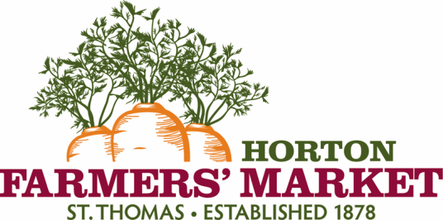





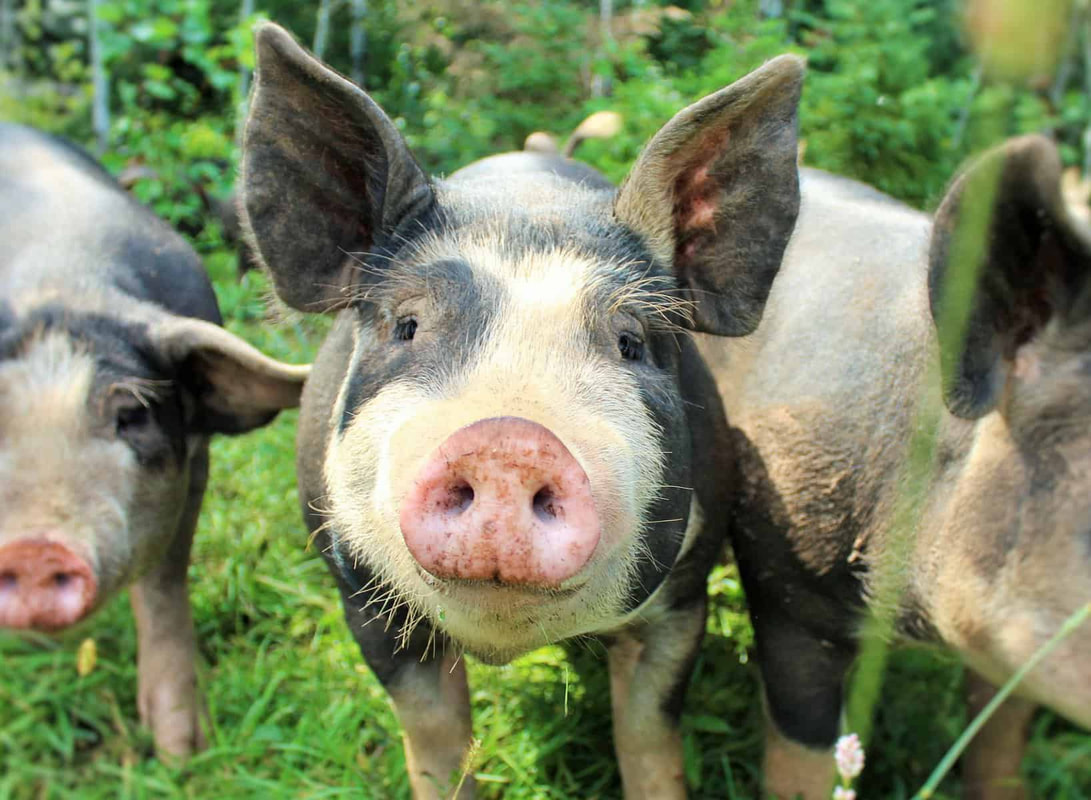
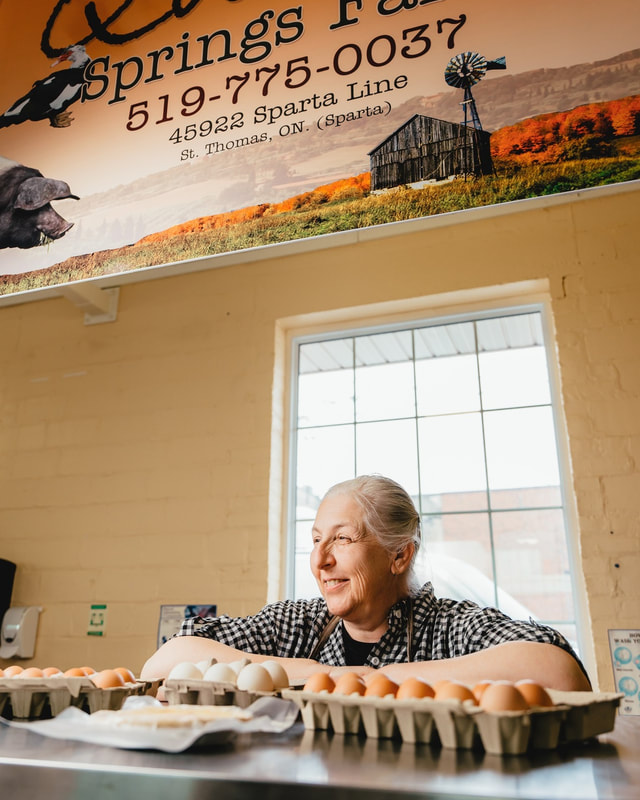
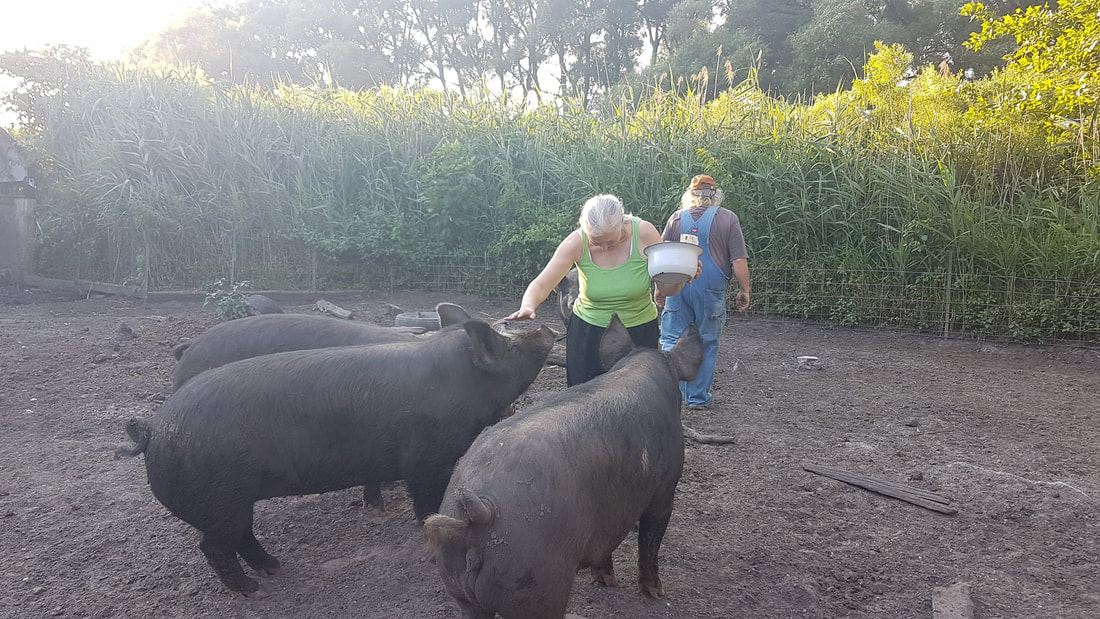



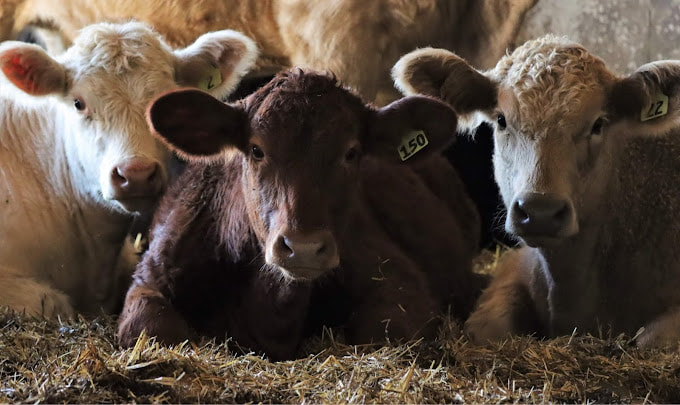
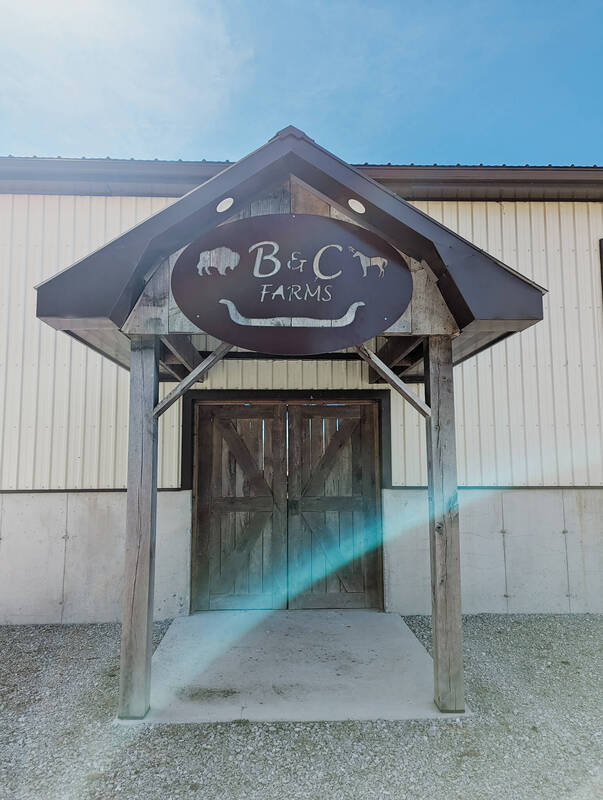

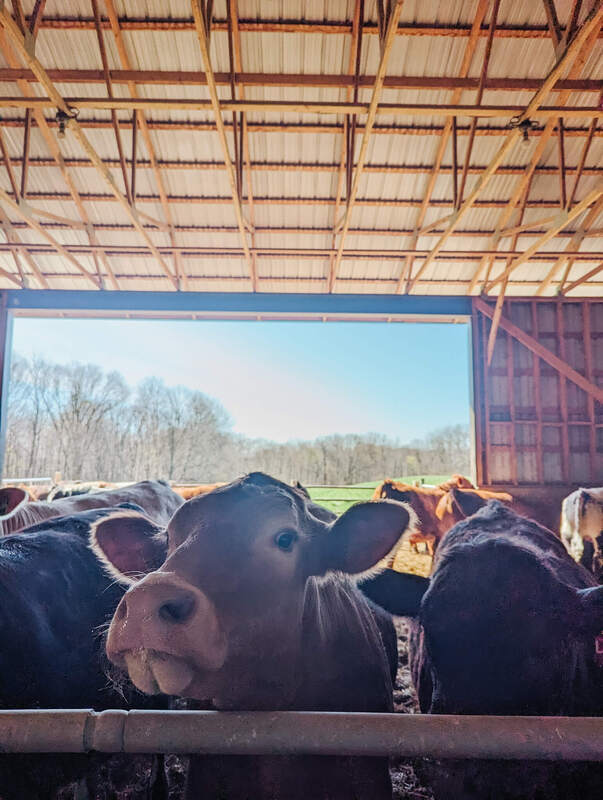
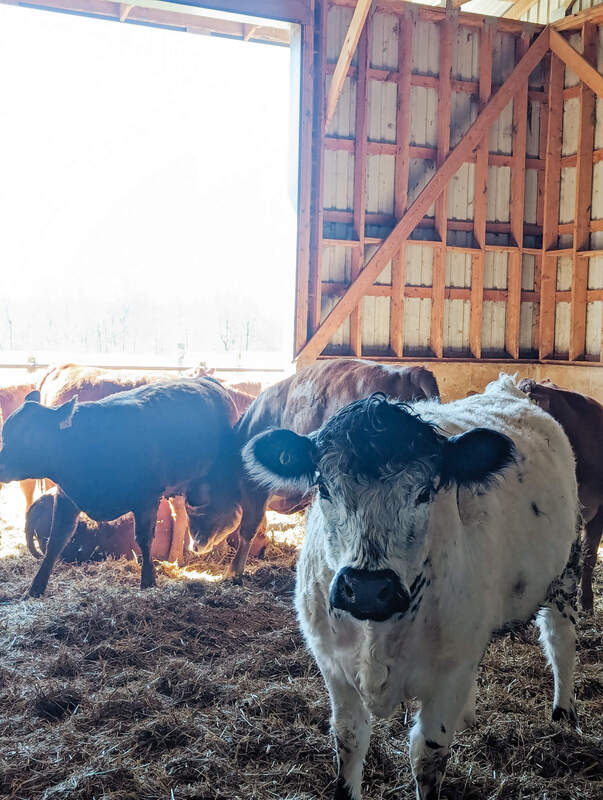


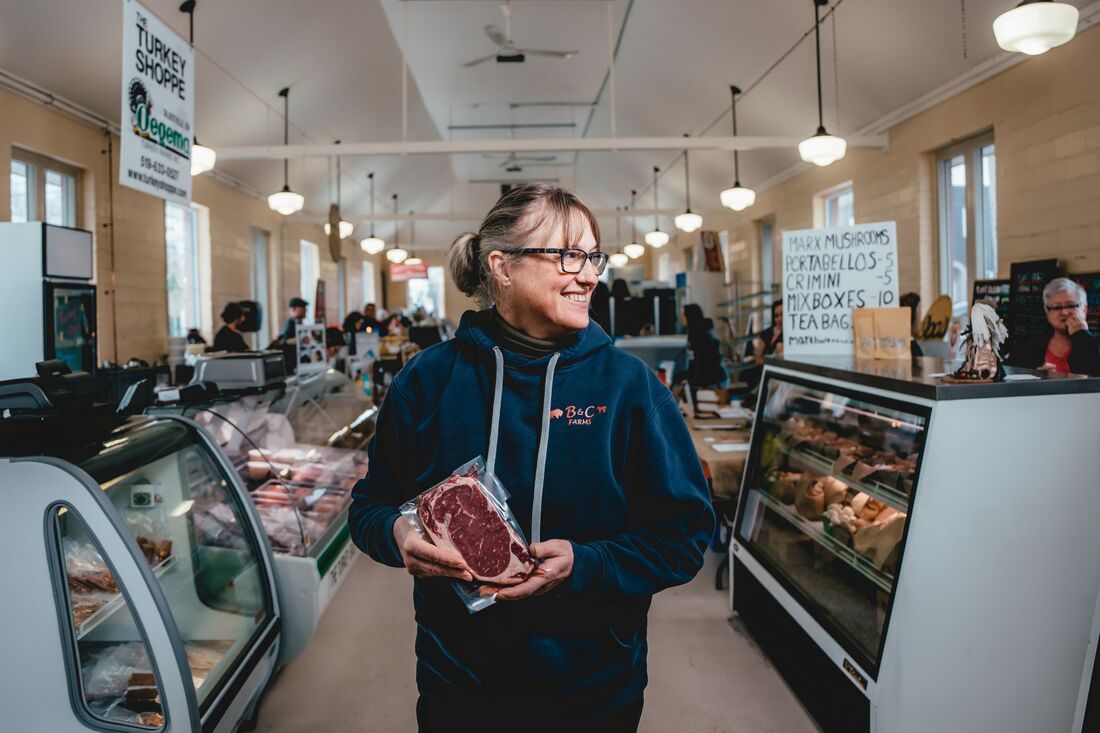

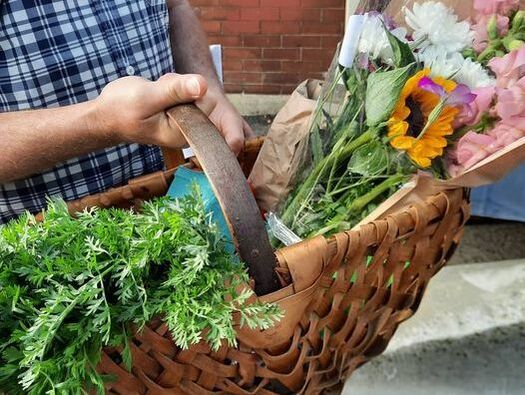


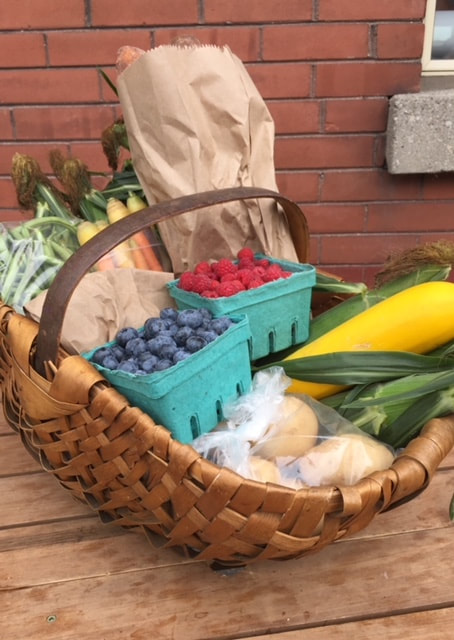


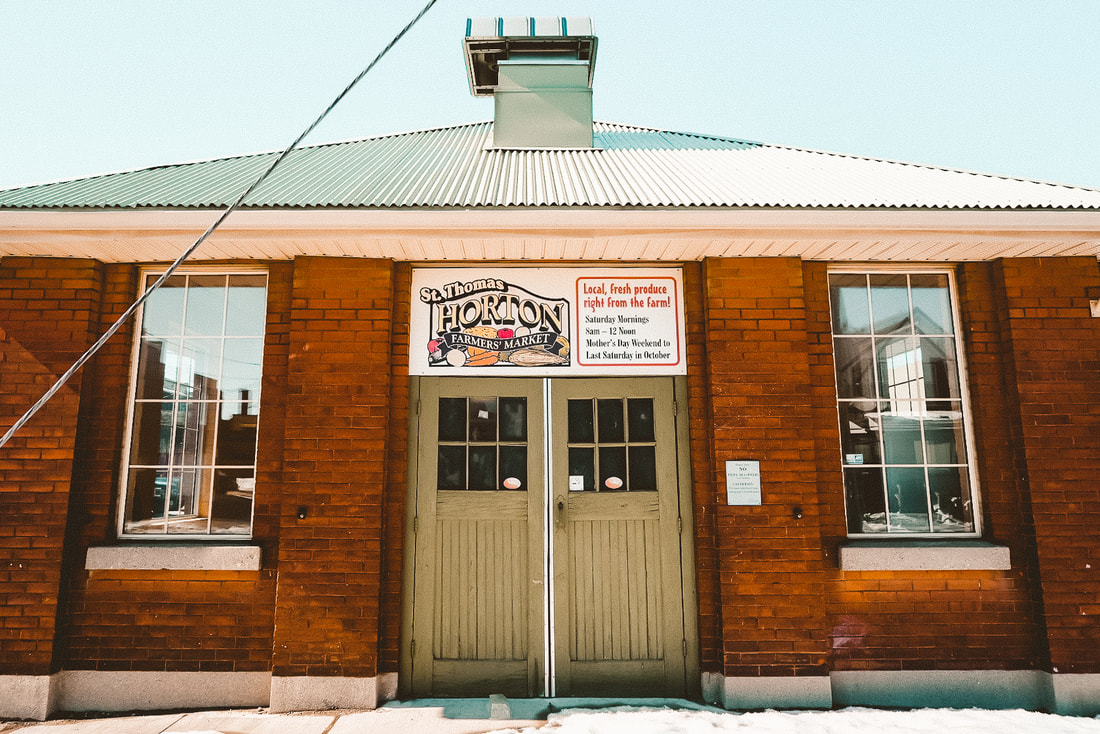

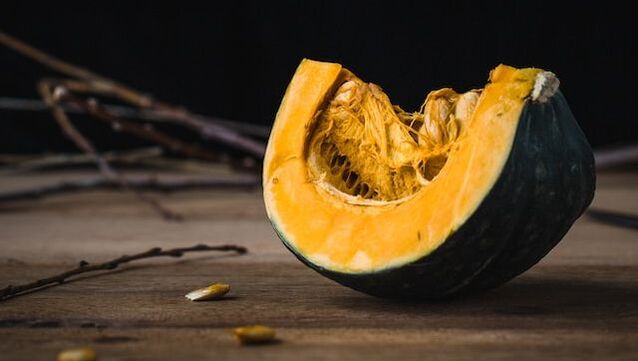





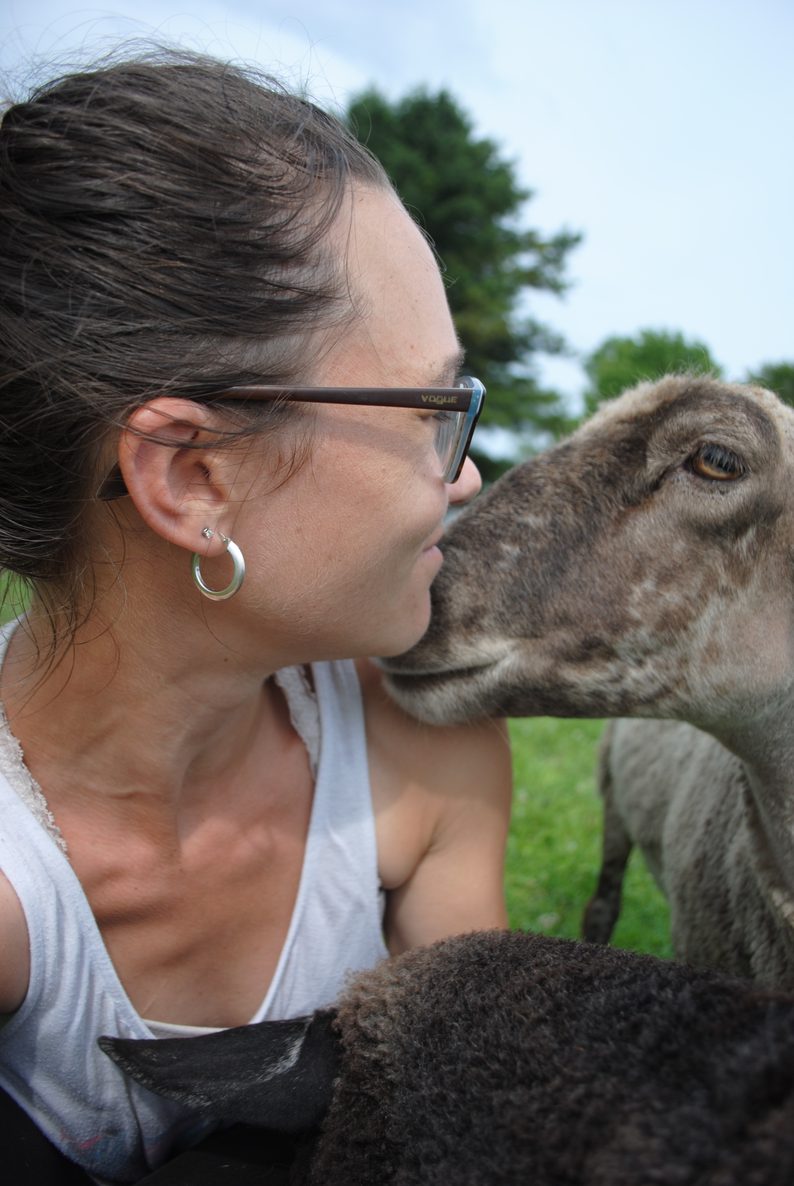
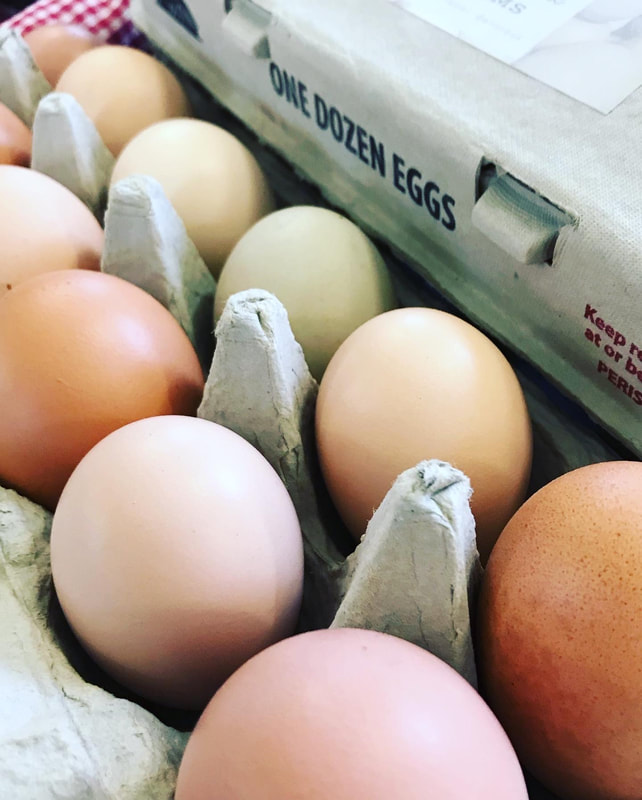

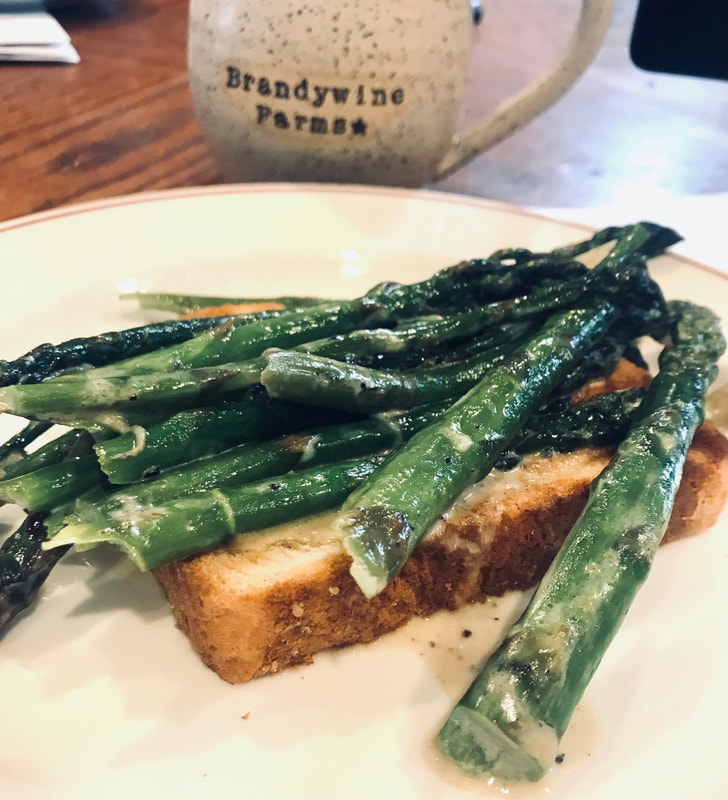


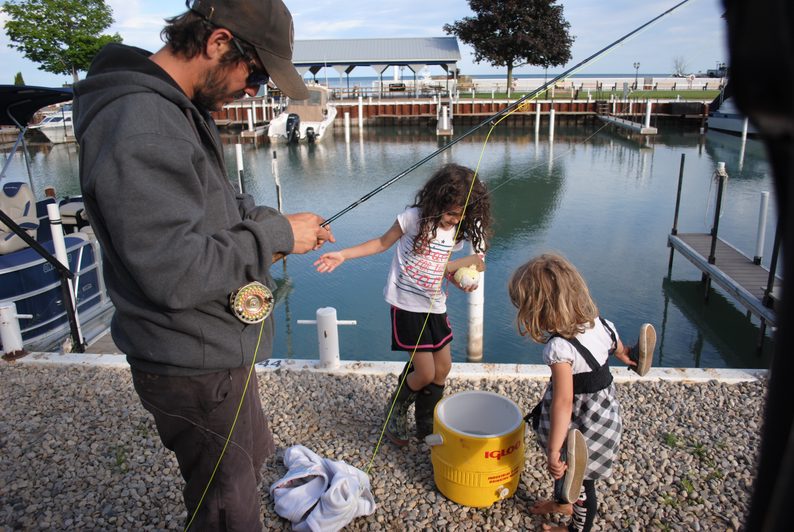

 RSS Feed
RSS Feed



